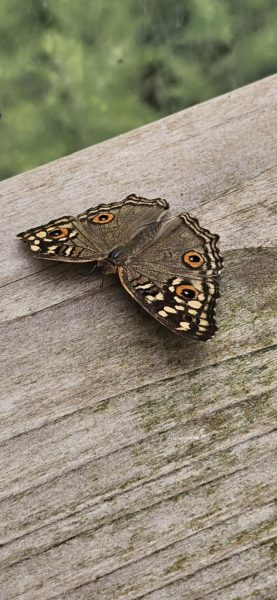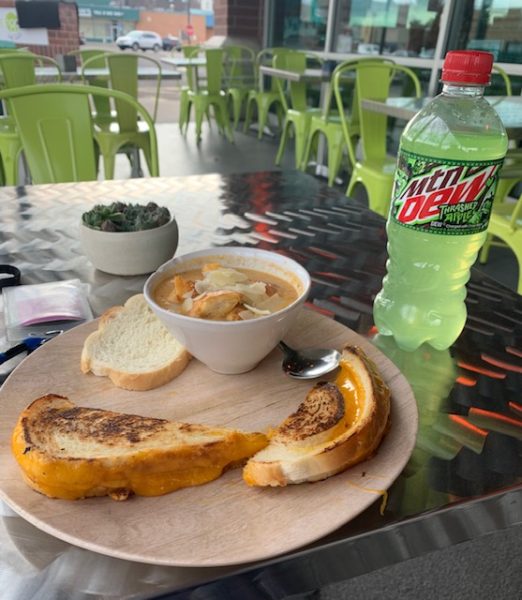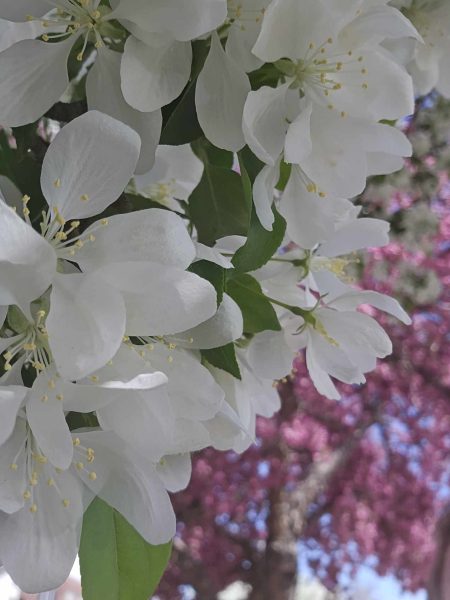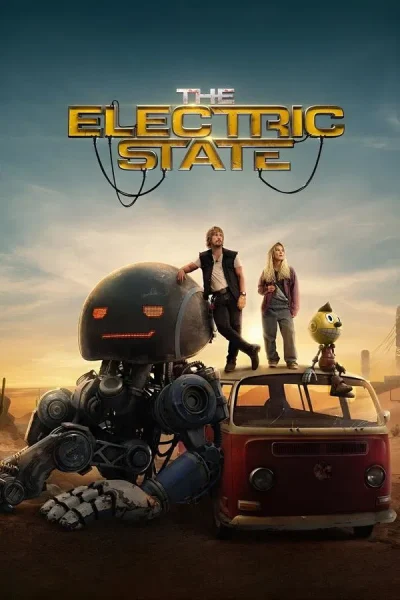The Dust of Time
Cuangar must be the strangest town in Africa, thought Okone as he lay on a lumpy straw mattress, in a chalky bed and breakfast that peered out west, onto the congruent jawline of Namibia’s skeleton coast. The five-hour drive from Windhoek was bumpy and had worn him out. It wasn’t in his nature to wonder far beyond the capital, where he spent his time as a quasi-archeologist digging up ruins from the ancient city of Silwa, on which Portuguese colonialists heedlessly built their city, Windhoek. Centuries of sand dunes had kept the primeval Kho khoi settlement hidden, but a new wind blew in from the North, and it slowly roused the days of old.
Okone couldn’t remember the last time his efforts brought forth any noteworthy finds. His father had wished for his only son to become a dignified physician, the kind that flies in nifty little airplanes across Africa, healing the sick and saving lives. “There’s good money in being a doctor,” his father would say. Instead, Okone quietly pursued his love for digging up old stuff, unveiling the past, forever after that significant discovery that would make everything fall into place.
In Cuangar it rained all the time but still, the land stayed dry and thirsty, like a tropical desert. Dust was everywhere. It covered the shingled rooftops of the small shotgun huts, it got into the eyes and ears of the people, and it got into the cracks and crevasses of the patchy roads last paved by the Portuguese. Then when it rained, the dust turned into gooey muck that oozed out of people’s ears and dripped down the slanted rooftops like fresh pigeon poop. Okone kept a damp handkerchief on him at all times, afraid the dust and goo might shut his eyes closed if he wasn’t careful. It happened all the time. Children in Cuangar would go to sleep forgetting to cover their eyes with damp cotton goggles and when they woke up the next morning, dust and rain had cemented their eyes shut.
Okone ran the thin edge of his wet handkerchief across his eyelids and over his eyelashes for the twentieth time that afternoon. His off-white safari suit now layered in a film of powdered dust from the mattress looked wrinkled, but he didn’t mind so long as his skin didn’t absorb the microscopic grime that left no smidgen clean. Light footsteps along the creaky floorboards of the corridor stopped in front of his door, leaving a shadow visible through the floor gap. After a short pause came a weightless, enigmatic rap at the door that sounded like morse code.
Okone rose with difficulty from the bed and straightened out his old safari suit as best he could, before tugging the door open. The old man standing in the empty corridor was tiny, barely four feet and wore a wide-brimmed Panama hat that half covered his barren face. Clothed in a stiff polyester suit, that didn’t quite hide the sweat patch across his narrow chest, he stared curiously at the tired, unkempt young man across the door sill, with a certain familiarity; like the scrutinizing gaze of a long lost relative.
“Keeping your clothes ironed repels the dust, you know,” remarked the old man, pointing a carved wooden cane at the young man’s pant legs. Okone’s face began to tingle and warm up like a chided schoolboy’s. Wiping the embarrassment from his face with the damp handkerchief, he stepped back to allow the guest to enter.
“Please, do come in,” said Okone.
“You are Dr. Okone Mandiba, renown archeologist, aren’t you?” asked the old man, taking careful steps to avoid the dust mounds on the floor. His fine Italian leather loafers were draped in opaque plastic shoe covers.
“Not sure about renowned,” replied Okone, pulling out a wooden chair from beneath the writing desk and offered it to his eccentric guest, who, with the wave of a wrist declined it.
“Thank you for taking the time to see me,” said the old man. The situation is delicate and I need the best man for the job.” The old man’s face looked much older than the rest of him. Okone couldn’t help gauge his age. His voice sounded like church bell chimes, melodic and everlasting.
“Well, I’ve been thinking about our conversation and honestly, I can’t make much sense of it,” said Okone shutting the door before more dust flew in from the uncarpeted corridor.
He was still unsure why the old, eccentric man called him out to this bizarre town. The two men stood face to face in the middle of the room in a stiff stance, like two African statues mimicking one another. Finally, the old man broke the silence.
“They tell me you are the finder of lost treasures. Well, my albino kitten, not yet six months, has run off and I need you to find her.”
Okone could hear his father’s weighty words bearing down on him from afar: “What, after all that education, you have now become a pet detective?”
“I’m an archeologist, I don’t do lost pets,” replied Okone.
“Ah, but I assure you it will be worth your while,” reciprocated the old man with a convincing smile.
“I suggest we get going right away, it’ll be dark by the time we get there, we haven’t any time to lose,” said the old man.
The sudden urgency caught Okone by surprise. A surge of energy galvanized through his veins, dissipating any previous apathy. Scanning the room with hawk-like precision, he honed in on his rucksack and an old vintage World War II flashlight that served as a paper weight on the desk beside the door. He grabbed the torch, stuffed it into his bag then reached for the door.
“After you,” he said, gesturing to his guest.
The old man owned a large piece of land on the edge of Cuangar, where the myriad of trees and grass were lush and evergreen, feed by a rushing stream. Driving through the conservatory, Okone marveled at the lack of dust and the fertile fields and thought this must be what the Garden of Eden looked like.
“How is it that all of Cuangar is suffering from a drought and your land stands out like an emerald in a dust bowl?” asked Okone bewildered.
The old man smiled without looking away from the road. His eyes barely reached over the large steering wheel of his Ford Fairlane convertible, and his wrinkled cheeks reminded Okone of the concentric rings of an old baobab tree that told the story of time.
They drove up to a small cave that dug down along the side of two mounded hills that resembled the budding bosoms of a young girl. The Khoi khoi call them ‘Naso Hablood.’ The old man switched off the engine and turned to Okone.
“The kitten tracks lead up into the cave,” said the old man pointing his cane at the wide opening.
“All you must do is go in there and bring her back to light.”
Okone clutched his rucksack and pulled out his flashlight. He switched it on and off to make sure it worked and stepped out of the convertible. The old man followed him to the mouth of the cave.
“Remember, the kitten is still young and easily frightened, so tread lightly,” he said before Okone stepped into the dark cave kindled by his dim torch.
The cave was more wide and shallow than it was deep, with smooth rounded walls that reminded Okone of the ancient royal burial tombs in the ruins of Silwa. He turned his light toward every darkened corner and called out for the feline in a soft voice. He ventured further into the low lying cave but there was no sign of a living creature inside. Bewildered at the task, he wiped the sweat from his cheek before it ran into his mouth and sat down on a large rock in the middle of the cave, placing his flashlight carefully next to him. Where the light shone onto the polished wall, Okone could make out the faint outline of a drawing that resembled a white leopard. He clutched his flashlight and moved closer to the sketching. Though time had faded some of the bright colorings, the large rendering of a leopard was still very vivid; crouching, ready to pounce. Beneath the menacing leopard, as if guarded by the formidable beast, Okone found a small mound of round stones heaped up next to the wall. Carefully, he removed each stone, one by one, only to uncover the skeletal remains of a tiny toddler, wearing royal garments, still fisting an intricately sculpted ivory leopard, with shimmering emerald eyes.
He eased the boy’s centuries-old grip and held the exquisite animal in the beam of his flashlight, marveling at the intricate artistry. What incredible fortune! When he’d had his fill, Okone carefully placed each burial stone back with much consideration, then scrambled out of the cave, flashlight in one hand, artifact in the other. Outside, he found the old man standing next to his convertible, leaning on his wooden carved cane, smiling placidly from beneath his billowing Panama hat.
“Every man is destined to find that what seeks him,” said the old man.
With dancing eyes Okone smiled back at his benefactor then pulled out his handkerchief and wiped away the dust of time from the ivory leopard.









Josie Mills • Nov 20, 2017 at 11:53 am
A profound story, so beautifully written!